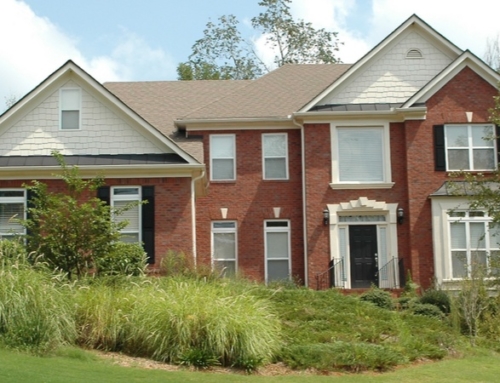Betsy and Bill owned a three-family residence in a suburb of Boston. It was rather run down when they bought it, but they only paid around $150,000 for it.
Over the years they slowly rehabbed the property, living in one unit while pouring in plenty of money and “sweat equity” to fix up the other two.
After 8 years, the neighborhood had improved dramatically. So they listed the building for sale with one of the top brokers in the area, and priced it at $325,000.
About a week later, they received an offer to purchase the property for $285,000. Although Betsy and Bill were “completely insulted,” as they put it, their broker convinced them to respond to the offer. The buyer ultimately offered them $299,000, which Betsy and Bill refused.
“At that time,” says Betsy, “we felt the building was worth a minimum of $300,000. We would either get that, or stay where we were. And we eventually paid for that make-it-or-break-it attitude.”
The building sat on the market for another year. By that time, Betsy and Bill were so desperate to sell that they lowered their asking price to $299,000 and ultimately sold the property for $275,000.
There seems to be an unwritten rule in selling real estate: Your first offer is usually your best offer. For example, if Betsy and Bill accepted their first offer of $299,000, they would have ended up $24,000 ahead of the offer they ended up accepting. And that $24,000 would have paid for their broker’s commission and then some.
But many sellers have trouble accepting their first offer, especially if it comes within a few days or weeks after the property is listed. If the offer comes too quickly, some sellers might believe they have undervalued their property and may want to hold out for an offer that is closer to the asking price.
Brokers, on the other hand, like to see quick offers. "The first three weeks after a property is listed is when it’s the freshest. Brokers who are unfamiliar with the property will be coming by to see it and deciding for themselves if they think it’s worth the money, or not," says one California broker.
A quick offer means someone has responded positively to the home on several levels, brokers say. They believe the home, if not priced correctly, is within reasonable negotiation range. They believe the home is sound, in good working condition, and meets their expectations for size and space and location based on the price.
But accepting the first offer can mean a psychological readjustment for the seller. Every seller hopes that dozens of prospective buyers will jump at the chance to purchase his or her home. When the first offer comes, sellers should readjust their thinking and concentrate on making the first offer the "right" offer.
While brokers would like every first-offer to be the right offer, things don’t always work out that way. Beverly and Bennett were offered $250,500 for their vacation property in Lake Tahoe, Nevada. Although the dollar amount was good, the offer wasn’t a “clean,” meaning the buyers added what Beverly and Bennett felt were onerous restrictions to the contract. For example, the buyers didn’t want to put any money down and wanted to make the purchase contingent on the sale of their own vacation property.
After consulting with their broker and their attorney, Beverly and Bennett declined the offer. Several months passed, and only a few people came through for showings. Then out of the blue, another offer came in. Although the dollar amount was only $500 less than the first offer, the contract was clean and solid.
How should you know if the first offer is the best offer? Sometimes it’s a matter of trusting your instincts. If you’ve priced your property well, and an offer comes in between 6 to 15 percent below your asking price, find a way to negotiate to a comfortable middle. Decide whether the offer is clean and straightforward, or if is laden with cumbersome contingencies. Decide whether or not you can live with the price, or if you’ll be wishing you’d waited to see if any other buyers would bite.
Sometimes you don’t know. Six months after listing his home for sale, a seller in Indiana received a solid offer. He accepted, but two days before closing he received another offer for $3,000 more.
Feb. 15, 2005.






Leave A Comment